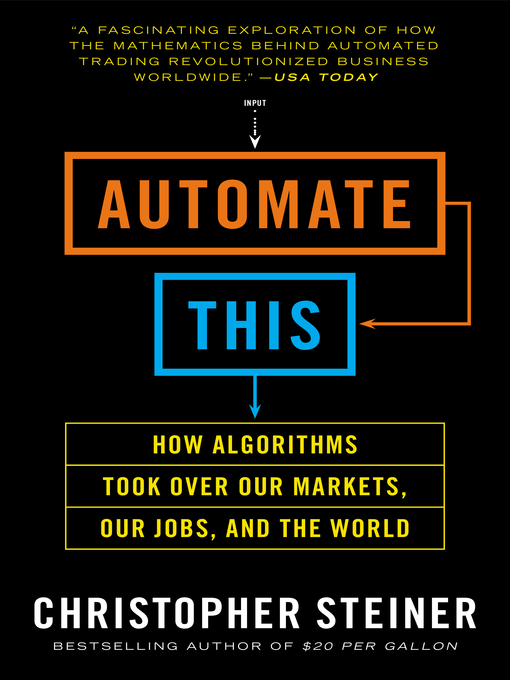It used to be that to diagnose an illness, interpret legal documents, analyze foreign policy, or write a newspaper article you needed a human being with specific skills—and maybe an advanced degree or two. These days, high-level tasks are increasingly being handled by algorithms that can do precise work not only with speed but also with nuance. These “bots” started with human programming and logic, but now their reach extends beyond what their creators ever expected.
In this fascinating, frightening book, Christopher Steiner tells the story of how algorithms took over—and shows why the “bot revolution” is about to spill into every aspect of our lives, often silently, without our knowledge.
The May 2010 “Flash Crash” exposed Wall Street’s reliance on trading bots to the tune of a 998-point market drop and $1 trillion in vanished market value. But that was just the beginning. In Automate This, we meet bots that are driving cars, penning haiku, and writing music mistaken for Bach’s. They listen in on our customer service calls and figure out what Iran would do in the event of a nuclear standoff. There are algorithms that can pick out the most cohesive crew of astronauts for a space mission or identify the next Jeremy Lin. Some can even ingest statistics from baseball games and spit out pitch-perfect sports journalism indistinguishable from that produced by humans.
The interaction of man and machine can make our lives easier. But what will the world look like when algorithms control our hospitals, our roads, our culture, and our national security? What happens to businesses when we automate judgment and eliminate human instinct? And what role will be left for doctors, lawyers, writers, truck drivers, and many others?
Who knows—maybe there’s a bot learning to do your job this minute.

